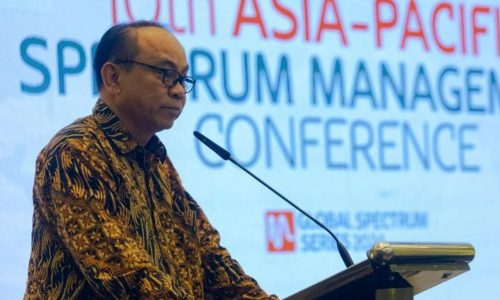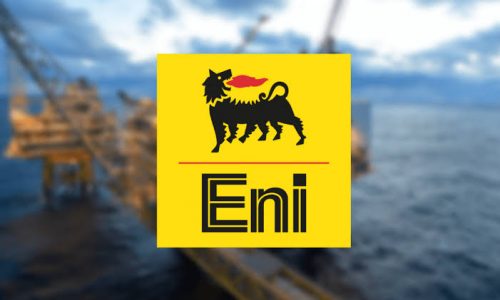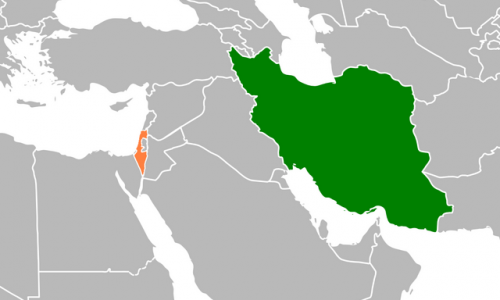The US, Japan, and several G7 and European Union (EU) countries committed to providing US$20 billion worth of funds for Indonesia’s energy transition under the Just Energy Transition Partnership (JETP) scheme during the G20 Summit in November last year.
At the moment, JETP was named as the single largest climate finance partnership ever and supported by the public and private sectors.
Up until now, the public was waiting for the detailed plans to be released. JETP has only provided US$15 million and US$157 million in technical assistance funds to identify priority projects in Indonesia.
Regarding the issue, the Indonesian government is trying to confirm that the interest risks of the funding provided by JETP are lower than those of commercial loans. On a working visit to Washington last month, the Coordinating Maritime Affairs and Investment Minister Luhut Binsar Pandjaitan was also asking about the money promised from US, Japan, and others.
Later on, Director General of the New Renewable Energy and Energy Conservation Dadan Kusdiana said on Friday (12/5) that IPG member countries increased Indonesia’s funding requirement for JETP scheme by 8.4 percent to US$21 billion, consisting of US$11.7 billion in public funding and US$10 billion in commercial funding.
According to Dadan, sources of public funding include grants, technical assistance funds, soft loans, and loan guarantees, while commercial funding consists of loans from the private banking alliance under GFANZ. A comprehensive investment plan will be launched on August 16, 2023.
JETP and ambition to reduce gas emissions
The Southeast Asia region has set a goal to have renewable energy account for 23 percent of its total primary energy supply and 35 percent of its installed power capacity by 2025. ASEAN member states are also expected to achieve their nationally determined contributions by 2030 and eventually net zero emissions by 2050.
In the case of Indonesia, in September 2022, the government announced an increased ambition to reduce greenhouse gas emissions through Enhanced Nationally Recognized Contribution (ENDC). The target to reduce greenhouse gas emissions with its own ability rose to 31.89 percent, while the target with international support was 43.20 percent.
Reaching these targets will require a substantial investment. According to Finance Minister Sri Mulyani, the total money needed to achieve this target is around IDR 4,002 trillion or US$281 billion by 2023, while as of 2021, the government can only afford less than ten percent of it.
Regarding the JETP funding scheme, Indonesia has outlined its strategic plans for the early retirement of coal-fired power plants and renewable energy development. This is reflected in Indonesia’s investment plan proposal for the climate investment fund (CIF), which presents a comprehensive financing package valued at US$600 billion, incorporating blended finance approaches.
Specifically, Indonesia aims to leverage US$600 million from CIF’s Accelerating Coal Transition concessional funding, along with US$2.2 billion in co-financing from Multilateral Development Banks.
Additionally, the government also intends to contribute over US$1 billion while seeking over US$1.3 billion in commercial co-financing.
However, Indonesia has to be wary of loan interests from the JETP funding provided by the US and Japan, taking measures to prevent future burdens. Learning from the lessons of South Africa, which previously received funding through the same partnership, it is crucial for Indonesia to consider the potential implications.
In the case of South Africa, out of the total funding of US$8.5 billion received, only a small fraction, approximately three percent, were grants. Meanwhile, the majority of the funding is comprised of concessional loans and commercial loans. Therefore, Indonesia must ensure that the JETP funding consists of a sizable portion of soft grants or loans rather than commercial loans with high-interest rates.
Raises prospect for China collaboration
The unsettled JETP partnership might encourage the strengthening of China-ASEAN and Indonesia cooperation in the energy transition as China has led innovation performance in clean technologies, according to the International Energy Agency.
The rise of China in global renewable energy development offers an opportunity for the ASEAN countries including Indonesia to accelerate their energy transition, especially given that China, ASEAN, and Indonesia already cooperate in many different areas.
Regarding Indonesia’s targets on reducing gas emission, China can play a role in facilitating energy transfers to Indonesia through cooperative efforts in manufacturing, research as well as investment, taking into account the market potential to increase Indonesia’s energy demand.
Citing an article written by the Institute for development of Economics and Finance (INDEF) researcher and ASEAN Center for Energy policy planning associate, China’s total public investment allocated to renewable energy projects in ASEAN between 2000 and 2020 reached US$31 trillion, accounting for 60 percent of total foreign public investment in the region over that period.
Meanwhile, in the past two years, Chinese companies have started to aggressively invest in EV battery production facilities in the country. Many of them have also started investing in the new and renewable sector, such as solar and wind power plants in South Sumatra and South Sulawesi.









